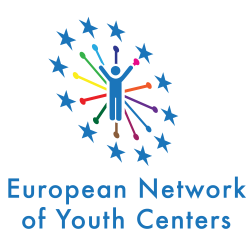[…] The Governing Board […] recommends that the Committee of Ministers implement a global integrated and long-term training policy aiming to promote the development of democratic and pluralistic structures based on the participation of young europeans in the life of society and, to this end: […] 2. promotes the creation or the development of a network of national and regional youth centres; this network will focus on co-operation and the mutual exchange of information, and in particular with the European Youth Centres in order to apply and reinforce the principles and action on which these Centres are built and operate;
[…] The present scope and modes of operation of the EYC and EYF have to be enlarged, but even this is not enough: the youth field needs to create new facilities for youth work.
The group of experts has submitted three main proposals to the Governing Board:
i. Another European Youth Centre;
ii. Fund for training and co-operation in the youth field;
iii. Building a network of corresponding regional and national youth centres in Europe.
All three proposals will need time to be implemented; the Governing Board envisages a period of five years to make all three proposals fully operational. […]
Two developments can be observed in Europe:
- in some member countries, efforts are being made to establish international centres for the training of young people; such centres already exist in some other countries;
- in some regions of Europe (eg Nordic co-operation, Mediterranean area) efforts are being made to create regional systems of co-operation in the youth field.
Neither of these developments has so far been integrated into a European system of co-operation.
It would certainly be a good idea to promote the creation of a network of these corresponding regional and national youth centres in Europe, not unlike the forms of co-operation between youth information centres and youth card systems in Europe, or, to take an example from outside the youth field, the co-operation of Europe Houses. The Council of Europe should certainly promote such a policy of creating networks between national and regional centres and the (hopefully two) Youth Centres and the Youth Foundation.
The philosophy behind these centres should consist of the major principles on which the Council of Europe’s youth field is founded, in particular:
- participation of young people, as a factor in training in democracy and the taking up of responsibility in everyday life, and as a vital element of the development of community life;
- intercultural education, as a factor of understanding between people and between nations and as a positive contribution, among others, to solving the problems encountered by minorities in multicultural countries and a multicultural Europe;
- co-management, as an element in ensuring the preparation and implementation of the major political and educational approaches in the youth field at a national, regional or even local level.
A Charter of these youth centres should be prepared which would enable the centres to be given a seal of approval according to these principles and the approach on which the Council of Europe’s youth sector is based; these youth centres would serve to promote this sector. In return, these centres could be supported by the EYC/EYF, particularly in logistical and financial terms.
Like the EYC, the purpose of the national and regional youth centres could be:
- to ‘highlight, promote, and broaden knowledge of linguistic, cultural, social, economic and political characteristics at local, regional and national level of countries hosting a decentralised European youth centre, and to give young people from other European countries the benefit of intercultural education based on specific economic, social, cultural and political data;
- to promote means of encouraging and ensuring the participation of young people in community life and particularly in finding solutions to problems concerning them, at regional and/or national level as well as at European level, and to develop activities arising from regional/national needs that may be beneficial for the development of a European awareness and identity;
- to carry out specific activities with a European dimension which cannot be carried out at the EYC;
- to serve as meeting places for regional, national or European youth organisations which will promote international understanding in keeping with the principles of human rights and fundamental freedoms;
- to offer further training to youth leaders in a regional or national context against a European background, according to the specific characteristics of each region or country;
- to provide training courses for leaders of youth organisations, teachers or other persons intending to organise youth exchanges or other types of trips, in accordance with the principles laid down by the Third Conference of European Ministers responsible for Youth;
- to promote research on youth problems: through the exchanging of ideas and discussion of experiences; through research with project teams aimed at promoting training activities; through contacts with persons providing resources (local universities, researchers, political personalities, socio-economic personalities) at local, regional, national or European level.
- to ensure a constant link with elected representatives of the Council of Europe’s Parliamentary Assembly, elected representatives of the Standing Conference of Local and Regional Authorities of Europe and with experts working in various Council of Europe fields such as the environment and education;
- to serve as regional, national and European-level information and documentation centres for everything concerning young people in a particular region, and working closely with other information and documentation structures – either already in existence or in the process of being set up – and more particularly with the EYC Tuition, Documentation and Research Section: information on youth exchanges; educational material on international youth work; documentation on thematic aspects of international and European youth work and particularly documentation on European unity through the plurality of regional and national cultures; information on regional, national and European youth structures and policies.
- to ensure contacts with the media with a view to setting up a European media area in the youth field;
- to serve as venues for some EYC activities such as language courses and/or training courses – or indeed symposia – with the aim of stimulating the European and international dimension of youth work at regional level.
The above list being certainly too exhaustive, the Governing Board points out that not all conditions need to be met in order to qualify as a corresponding centre. The list indicates a potential of what can be done and shows the areas where avenues of co-operation can be built with the already existing youth work provisions of the Council of Europe. The details of the running of such a complex system will have to be looked into by the group of experts taking over from the first group which finished its work with the delivery of this report to the Governing Board. […]
For the full version of the text, please access the link below:

